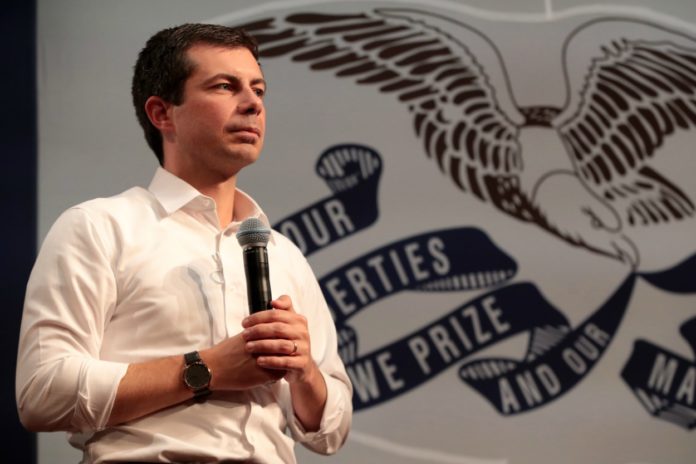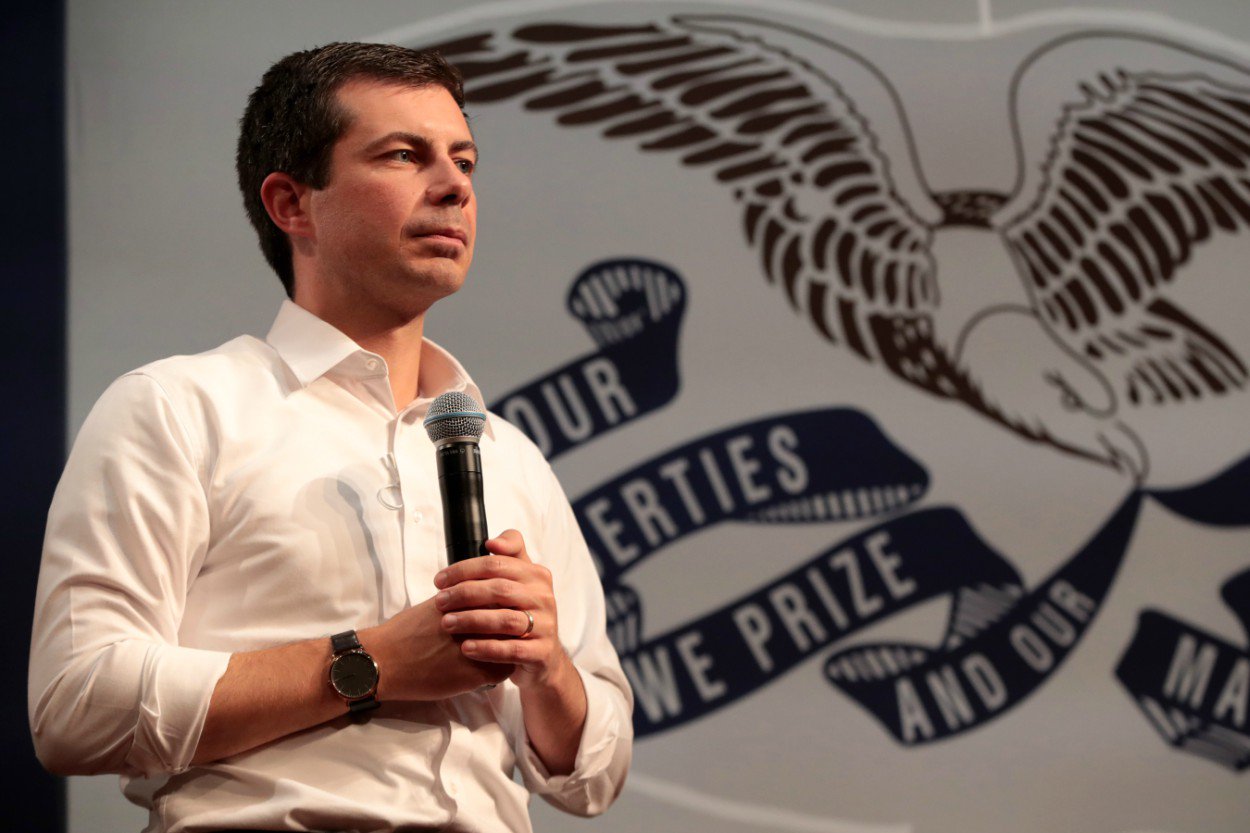[ad_1]

Byron Allen is not backing down in his U.S. Supreme Court battle against two cable mega corporations, and Democratic presidential hopeful Mayor Pete Buttigieg agrees that the U.S. Department of Justice needs to do a better job protecting the civil rights at stake in this case.
The racial discrimination case against Comcast filed by Allen, who is founder and CEO of theGrio‘s parent company Entertainment Studios, is now headed to the U.S. Supreme Court, and revolves around the Civil Rights Act Of 1866 which outlaws the presence of racial bias in business contracts.
However, many were dismayed when the Justice Department stepped petitioned the Supreme Court with an amicus brief saying it wants Allen to prove that race was the singular motivating factor in his claim that Comcast is in violation of the statute.
“We cannot condone Comcast’s attempt to eviscerate this important civil rights statute in order to legitimize their refusal to enter into a contract with Mr. Allen. We stand in solidarity with Byron Allen and Entertainment Studios,” said Michael Lawson, President and CEO of the Los Angeles Urban League. “Now it is time for us to act, to stand up and be counted and refuse to do business with any organization that supports the legalization of racism in any form.”
EDITORIAL: Donald Trump’s DOJ and Comcast are dismantling Black people’s Civil Rights
“It’s very clear that the civil rights division of the DOJ is not very energetic when it comes to civil rights, right?” Buttigieg said Tuesday, when asked about the case during a Women of Color luncheon event in Los Angeles where he spoke to attendees. “But it really matters who’s leading the DOJ. And it really matters whether you have a vigorous civil rights division, both to enforce in cases like you’re talking about.”
He also noted, “This is critical because we need that economic empowerment to happen. I think this conversation needs to happen alongside the reparations conversation.
To his point, this week, more than two dozen civil rights groups said in briefs filed with the U.S. Supreme Court this week that the wrong outcome in this case could weaken discrimination protections in the workplace and had the potential for “irreparable harm” to the cause of civil rights.
READ MORE: Los Angeles Urban League urges Supreme Court to protect the Civil Rights Act Of 1866
[ad_2]
Source link

